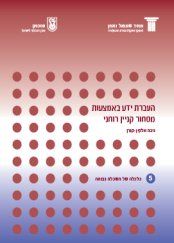מיסחור תוצאות מחקר אקדמי וניהול קניין רוחני באוניברסיטאות מהווה בשנים האחרונות מושא לרפורמה ממשלתית וחקיקתית. ההצעות לרפורמה מבקשות להטיל חובה על מוסדות ציבוריים לנצל את הפוטנציאל המסחרי של המצאות שפותחו במסגרת המחקר ולהסדיר את הבעלות בהמצאות אלה.
מחקר זה דן בהשלכות של מדיניות מיסחור ידע אקדמי באמצעות פטנטים תוך סקירה ביקורתית של הספרות והמחקר העדכני בנושא ובחינת ישימותם למציאות הישראלית. המחקר מנתח את שיקולי המדיניות הרלבנטיים להעברת ידע, תוך זיהוי מעצבי המדיניות והתווית עקרונות מנחים לפעולתם.
המחקר מצביע על הצורך להגדיר באופן ברור את היעדים של מדיניות העברת ידע, תוך הבחנה בין יעדים לאמצעים: בעוד שהעברת ידע לתועלת הציבור מהוה יעד חשוב, מיסחור המצאות באמצעות פטנטים מהווה אמצעי להעברת ידע, שיעילותו עלולה להשתנות בהתאם לנסיבות.
המחקר בוחן את התפתחותן של יוזמות מדע פתוח המבוססות על מודל הרישוי של הקוד הפתוח בתחום התוכנה. אסטרטגיות רישוי אלה מדגימות כיצד ניתן להשתמש בקניין רוחני על מנת להתמודד עם חסמי הגישה לידע אקדמי שיוצרת שיטת הפטנטים, ולהבטיח את חופש המחקר והתחרות. מדיניות העברת ידע צריכה להתאים למודלים החדשים של הפקת ידע והפצתו באמצעות רשתות חברתיות, ולשקף את מחויבותן הציבורית של האוניברסיטאות.
לסיכום מובאת שורה של המלצות לגיבוש מדיניות מיסחור ידע אקדמי ברמה האוניברסיטאית, הממשלתית והחקיקתית, תוך שימת דגש על האמצעים המשפטיים שבאמצעותם ניתן למזער את ההשלכות השליליות של מיסחור ידע אקדמי באמצעות פטנטים.
 / דוחות ומחקרים / העברת ידע באמצעות מסחור קניין רוחני
/ דוחות ומחקרים / העברת ידע באמצעות מסחור קניין רוחני











